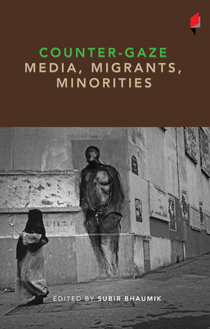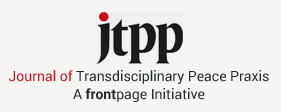Counter-Gaze: Media, Migrants, Minorities

- I Could Not Save Mahatma Gandhi: Untold Stories from a Witness’s Diary
- Indian National Evolution: A Brief Survey of the Origin and Progress of the Indian National Congress and the Growth of Indian Nationalism
- Tagore’s Best Short Stories
- Counter-Gaze: Media, Migrants, Minorities
- Women’s Encounter with Disaster
Binding:PaperbackSize: 215x140 mm
Pages: 266Year:
Counter-Gaze: Media, Migrants, Minorities assesses the situation of migrant minorities not just in Third World colonised countries in South Asia but also in the Western societies in Europe which hitherto had not been subjected to any meaningful analysis. Under the Eurasia-Net programme, scholars, minority and human rights activists, researchers, and journalists from South Asia visited European countries while their counterparts from Europe came to South Asia to evaluate the conditions of the minorities in each of these regions accessing language rights, political participation, representation in public media and institutions, and arrangements for protection of their rights under a majority-centric domination.
The result is the present study that throws up some critical questions on how migrants have come to form minority communities, how their claims to citizenship, rights and justice have occupied space in the politics of the nation and supra-national bodies. The collection of essays here highlight how the protection arrangements always fall short of their goal, where protection becomes one more tool in the hands of the government to sustain the majority-minority divide and how it refuses to accept the claims of minorities to equality and people-hood.
A successful minority is one where the minority group withers away and the protection regime in turn becomes redundant. This research programme examined the European experience of minority issues as well as the South Asian laws and practices. There is an increasing familiarity between the two sets of experiences and so the book is not so much about counter gaze but about the anticipated and resultant familiarity in human rights struggles.
Subir Bhaumik is the BBC's Eastern India Correspondent based at Kolkata, India. He has worked for Time and Reuters, and prior to that for the Press Trust of India and the Kolkata-based Ananda Bazar Patrika. Widely travelled Subir worked on research projects of many universities and institutes like the East-West Center, Washington; he has covered India's troubled North East and written extensively on various aspects including political crises in Burma, Bhutan and Bangladesh. A Queen Elizabeth House Fellow at the University of Oxford (1989-90), Subir's publications include: Troubled Periphery: Crisis of India's North East (Sage, 2009) and Insurgent Crossfire: North- East India (Spantech & Lancer, 1996).
Ranabir Samaddar is the Director of the Calcutta Research Group. He has worked extensively on the contemporary issues of justice, human rights, forms of autonomy, forced displacement, partitions, trans-border migration, refugee care and protection, and minority rights and popular democracy in the context of post-colonial nationalism with special reference to South Asia. He is also the editor-in-chief of the South Asia Peace Studies Series. His current work is on theories and practices of dialogue, a question crucial to the politics of justice and reconciliation. His last publication is the critically acclaimed two-volume work, titled, The Materiality of Politics (2007).
Contents
Part I: The Media Space
Sumon K Chakrabarti: The Media in France and the Politics of Integration
Stephen Wright: Visible Minorities, Invisible Citizens: Minority Representation in the French Media
Subir Bhaumik: Integration, Multiculturalism and Glolocalization: Migrant-Minorities and the German Media
Sanjay Barbora : Media and Minorities in the United Kingdom
Rita Manchanda: Media, 'Terrorism' and 'Suspect Communities': Towards A Malign Paradigm of Globalization
Part II: Migrant Worlds
Sumaiya Khair: Migration and Minority Formation - The Interplay of Economics, Politics and Conflict
Samir Kumar Das: Migrants, Minorities, Autonomy: The South Tyrol Model
Sabyasachi Basu Ray Chaudhuri: Britain's Multiculturalism Revisited
Part III: Minority Reflections
Sanam Roohi: Minority within Minorities: Muslim Women in Kolkata
A S Narang: Nation-Building and Minority Alienation in India
Thomas Benedikter: Dialects, Languages And Government Policy: The Protection Of Linguistic Rights In India
Part IV: Interface – A Dialogue on Minority Rights
Bibliography
Contributors
A S Narang is a Professor of Political Science and Coordinator of the Human Rights Education Programme at the Indira Gandhi National University, New Delhi
Rita Manchanda currently is the Research Director at the South Asia Forum for Human Rights - SAFHR
Sabyasachi Basu Ray Chaudhuri is a Professor of Political Science at the Rabindra Bharati University, Kolkata
Samir Kumar Das is a Professor of Political Science at the University of Calcutta, Kolkata
Sanam Roohi is a doctoral student for the collaborative project between NIAS and the AISSR, University of Amsterdam
Sanjay Barbora is the Regional Manager (Conflict and Media Programme) of Panos Institute in South Asia
Stephen Wright is a Paris-based writer and Professor of Art Theory and History at the European School of Visual Arts
Sumaiya Khair is a Professor of Law at the University of Dhaka, Bangladesh
Sumon K Chakrabarti is the Chief National Correspondent of the CNN-IBN television channel
Thomas Benedikter, an economist and social researcher, is a senior research fellow working freelance with the European Academy, Bozen, Italy










